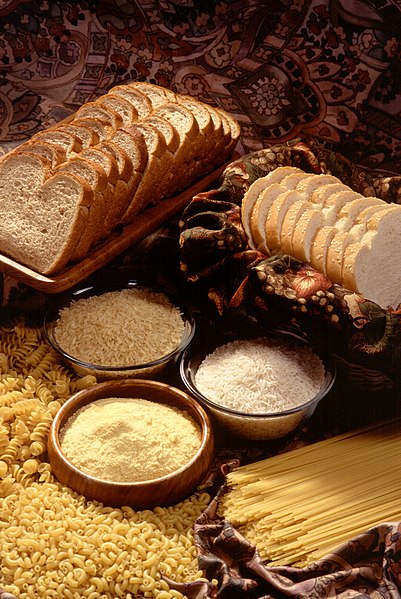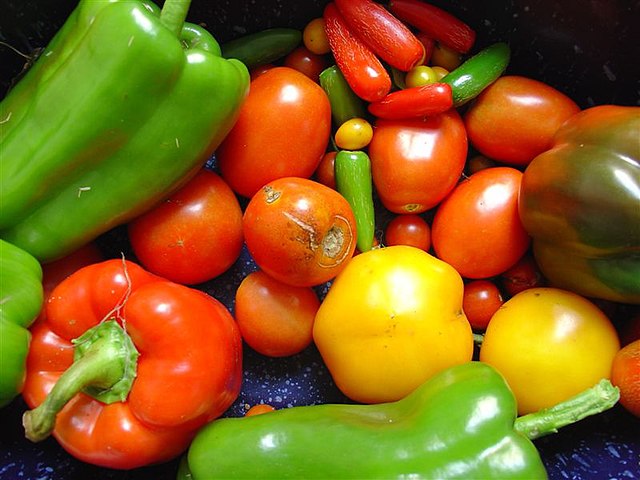Human nutrition deals with the provision of essential nutrients in food that are necessary to support human life and good health. Poor nutrition is a chronic problem often linked to poverty, food security, or a poor understanding of nutritional requirements. Malnutrition and its consequences are large contributors to deaths, physical deformities, and disabilities worldwide. Good nutrition is necessary for children to grow physically and mentally, and for normal human biological development.
Foods high in magnesium (an example of a nutrient)
Grain products: rich sources of complex and simple carbohydrates
A manual water pump in China
Colorful fruits and vegetables may be components of a healthy diet.
Metabolism is the set of life-sustaining chemical reactions in organisms. The three main functions of metabolism are: the conversion of the energy in food to energy available to run cellular processes; the conversion of food to building blocks of proteins, lipids, nucleic acids, and some carbohydrates; and the elimination of metabolic wastes. These enzyme-catalyzed reactions allow organisms to grow and reproduce, maintain their structures, and respond to their environments. The word metabolism can also refer to the sum of all chemical reactions that occur in living organisms, including digestion and the transportation of substances into and between different cells, in which case the above described set of reactions within the cells is called intermediary metabolism.
This is a diagram depicting a large set of human metabolic pathways.[image reference needed]
Plant cells (bounded by purple walls) filled with chloroplasts (green), which are the site of photosynthesis
Santorio Santorio in his steelyard balance, from Ars de statica medicina, first published 1614





![This is a diagram depicting a large set of human metabolic pathways.[image reference needed]](https://upload.wikimedia.org/wikipedia/commons/thumb/a/a8/Human_Metabolism_-_Pathways.jpg/640px-Human_Metabolism_-_Pathways.jpg)

